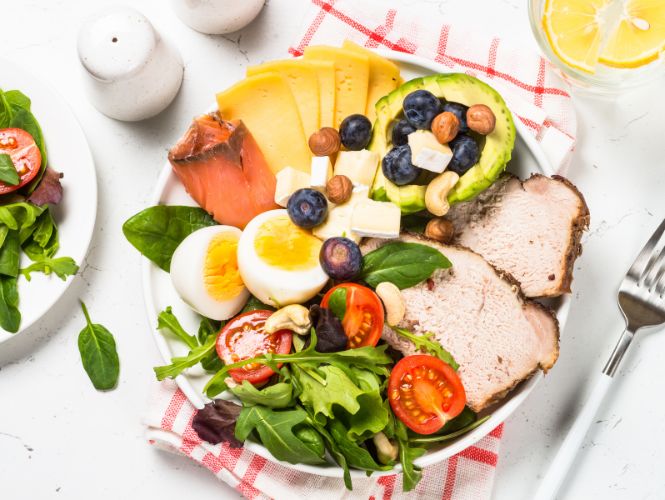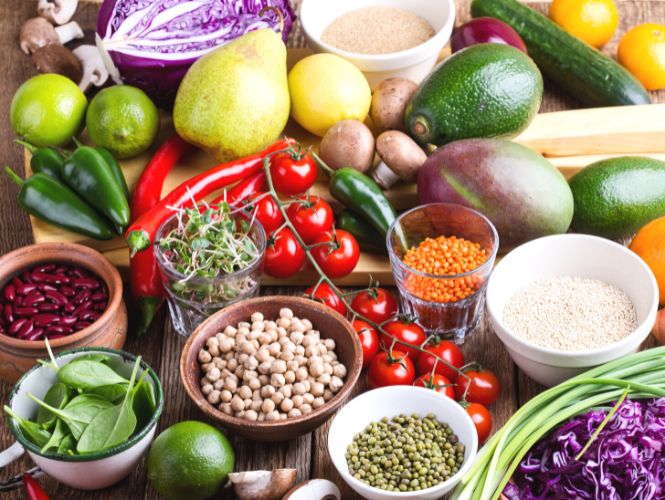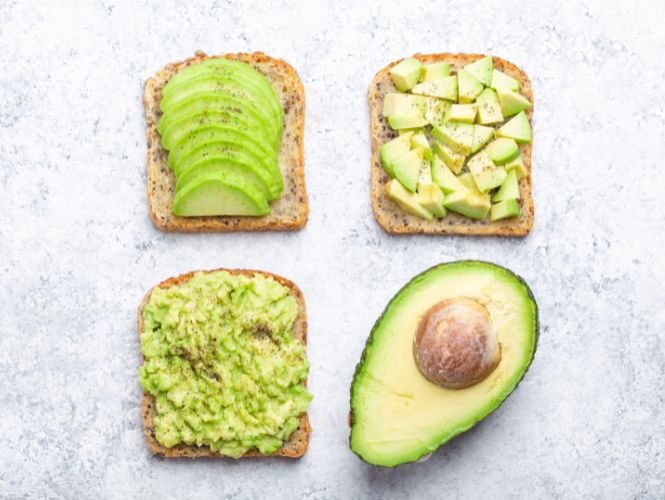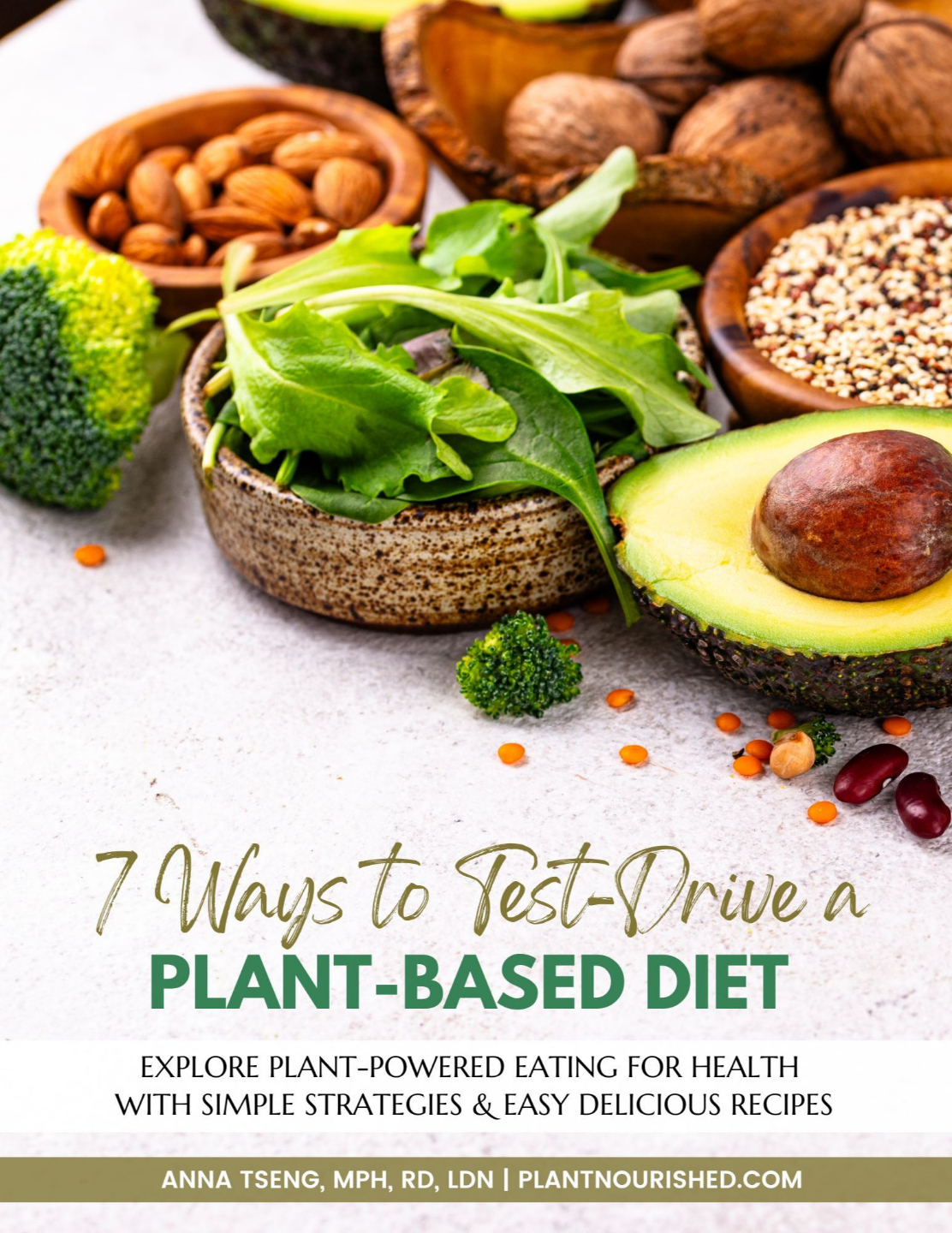How to Free Up Room to Begin a Plant-Based Diet
Jun 21, 2022
What’s Your Capacity?
Sometimes there IS that desire to add in more plant-based foods like beans, vegetables and whole grains into one’s meals. After all, you may have already heard about the potential powerful health benefits of a plant-based diet and want to see some positive changes to your current health condition. But you might also be facing this one key problem to your plant-based diet transition: appetite. Are you feeling this way?
There are two aspects of appetite that may be standing in the way of you starting or making much progress in your plant-based diet transition. The first aspect is taste and appeal, but the second aspect is this: there might simply be NO room!
Is Your Plate Too Cluttered?
It’s one thing to want to eat more plant-based, but here’s a key question to ask yourself: do I even currently have room to do so? What do I mean?

Think about this for a minute. Every one of us needs a certain amount of calories and nutrients a day to maintain health and optimal body weight. There is a theoretical maximum limit to the amount we can eat in a day before we are full to the bursting point and before we begin to gain an excess amount of weight. Of course, there are many different factors at play when looking at weight gain and weight loss - such as activity level, age, type of food and metabolism – but the total amount of food we eat and our total caloric intake each day does contribute towards our weight status.
So, if we are eating mostly meat-based dishes and low nutrient-containing yet high-calorie heavily processed commercial foods frequently as part of our intake each day, we will naturally end up feeling full from these foods and have little room and appetite left for eating many fruits, vegetables and other nutrient-dense plant-based foods. This is partly because meat-based dishes tend to be more calorie-dense as animal-based proteins are typically coupled with animal fats, and are cooked or processed with oil, butter or sauces. Heavily processed commercial foods that contain various forms of oil and sugar as part of their ingredients will also tend to be more calorically dense.
But if established research is showing that our dietary patterns as a whole do matter, and that there are clear associations between a meat-based diet with chronic health conditions like cancer, gout and heart disease, then the choice to change the way we are eating may not be so hard to make. Research is also increasingly revealing the health benefits of plant-based foods, with many phytochemicals and nutrients within fruits and vegetables that are still being discovered.
Let’s Create Room for Whole Plant-Based Foods
So, if whole plant-based foods like vegetables, fruits, nuts, lentils, whole grains, seeds and beans really have health-promoting, chronic disease preventing and combating benefits, then it makes sense to create more space in our diets and daily intake for that. If you’re not ready to make a shift to a full plant-based diet yet, then here's a logical and smart first step you could take: begin removing some of the high-calorie, high-ticket items found regularly in your meals. This way, you be able to develop more of an appetite and the ability to eat more healthful foods!

Another way to think about this is to view our bodies as cars. We have a choice daily what to fill up our ‘tanks’ with to fuel our bodies. Either it can be a rainbow-colored variety of nutrient-rich plant-based foods or we can choose to fill our ‘tanks’ instead with mainly meat-based and low nutrient-containing highly processed commercial foods. We can only fill so much in our tanks daily, and what we eat today will determine how we ‘run’ or perform into the future, including the long-term health consequences on our bodies.
3 Simple Practical Strategies to Try
So how can you begin ‘decluttering’ your meals and snacks to make room for more nutrient-rich plant-based foods? Here are three simple yet practical suggestions to help you move forward on a plant-focused diet – pick one to get started with right away!

- Make One Meal a Day Plant-Based – You can use this strategy for either breakfast, lunch or dinner. Choose whichever meal in the day you feel would be easiest to ‘upgrade’ and modify first. For many, breakfast is often a good place to start and may be the simplest to change. Instead of the usual scrambled eggs or bacon, branch out to try other options. These can include smoothies, vegetarian baked beans on toast, breakfast burritos, overnight oats and much more!
- Cut Down the Meat in a Recipe by Half – This is another simple yet effective strategy. If you have an existing home recipe that you or family members love, start by simply substituting half of the meat in that recipe with more vegetables and/or beans. For example, if it is a meat-based chili, why not try reducing the amount of minced meat in that recipe and adding in more chopped bell peppers, carrots or a cup of cooked or canned beans?
- Choose a Plant-Based Snack - If you’re used to having 1-2 snacks a day, this could be an area to target first by consciously choosing a plant-based snack option instead to enjoy. Depending on your mood and preference, these could include a fresh fruit salad, a chia pudding, an apple avocado salad, a piece of fresh fruit, or even some roasted red pepper hummus with baked tortilla chips or fresh vegetable sticks. There are many plant-based snack possibilities available!
Before You Go, Grab this FREE Resource
If you would like to learn how to start plant-based eating or to begin a whole food plant-based diet, grab this FREE resource “Beginner’s Quick Guide to Must-Know Plant-Based Diet Basics” to help you on your journey.
This FREE guide gives you the essentials you need to get started, including key terms to know about, rich plant-based sources of important nutrients, a starter meal plan with recipes and more! This guide is perfect for all beginners interested in transitioning to a plant-based diet. So grab this guide if you’re looking for tips for eating a plant-based diet for beginners!



